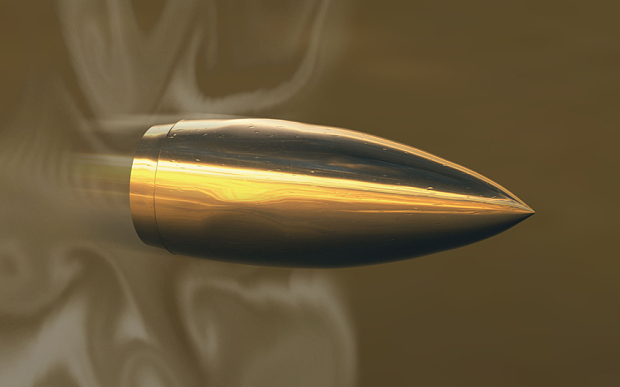
The US Department of Defense has tested self-steering bullets that steer themselves towards a moving target.
The bullet was developed to "increase hit rates for difficult, long-distance shots" by America's Defense Advanced Research Projects Agency.
Though the US has not disclosed how the project known as EXACTO works, it is believed it uses small fins that shoot out of the bullet and re-direct its path.
"True to DARPA’s mission, EXACTO has demonstrated what was once thought impossible: the continuous guidance of a small-caliber bullet to target," DARPA program manager Jerome Dunn said.
"This live-fire demonstration from a standard rifle showed that EXACTO is able to hit moving and evading targets with extreme accuracy at sniper ranges unachievable with traditional rounds,” he added.
The US said that the programme has “developed new approaches and advanced capabilities to improve the range and accuracy of sniper systems beyond the current state of the art.”
The bullet features a real-time optical guidance system to direct it to its target by compensating for "weather, wind, target movement and other factors" that could prevent successful hits, allowing snipers to become much more accurate.
"Fitting EXACTO’s guidance capabilities into a small .50-caliber size is a major breakthrough and opens the door to what could be possible in future guided projectiles across all calibers."
VIDEO: GEO BEATS
This article originally appeared on The Telegraph.































































COMMENTS (4)
Comments are moderated and generally will be posted if they are on-topic and not abusive.
For more information, please see our Comments FAQ